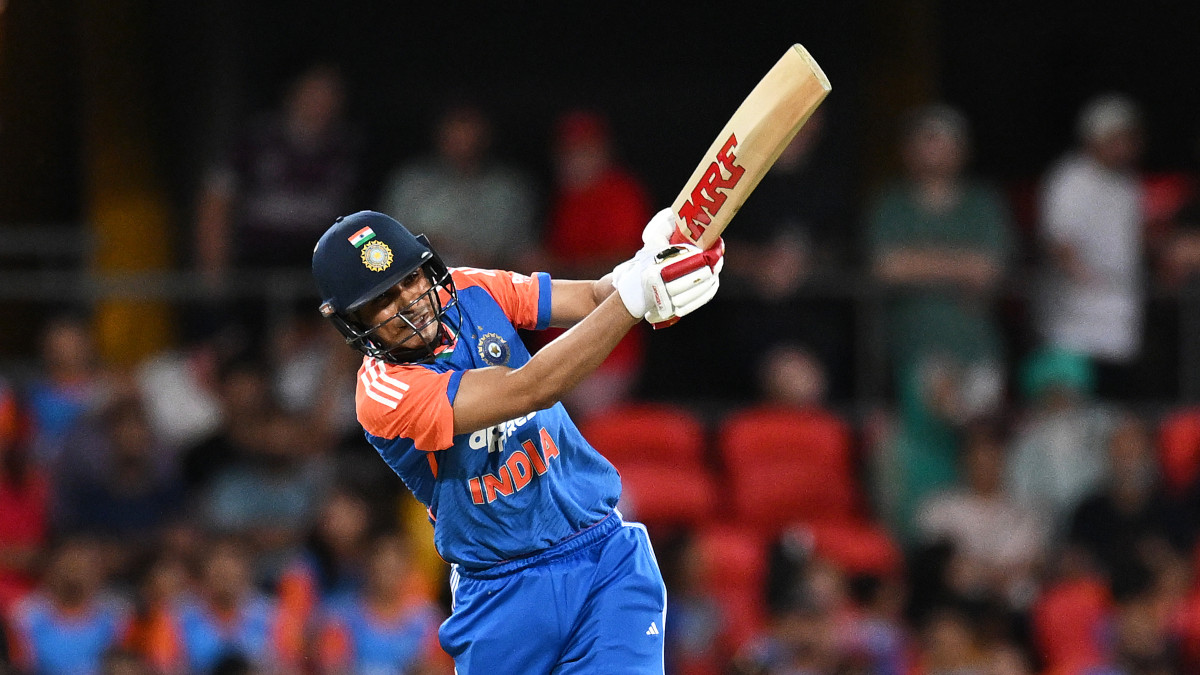India T20I vice-captain Shubman Gill was back among the runs on Thursday after a couple of low-scores, top-scoring for his side with a knock of 46 off 39 deliveries during the fourth T20I in Gold Coast.
Gill has had a mixed run so far in the white-ball tour of Australia; while he had struck an unbeaten 37 in the rain-marred T20I series opener in Perth, he had gone past 20 just once in the remaining five outings, including in the ODI series, before Thursday’s showdown at the Carrara Oval.
The 26-year-old batted steadily on a tricky wicket in the fourth T20I, collecting four fours and a six along the way, and was a hit away from bringing up his first half-century of the ongoing tour when he was cleaned up by Nathan Ellis.
Turns out he could have scored at least one more run on Thursday, with an incident during the 14th over of the Indian innings putting the spotlight on the rules of the game and why some of them need to be reviewed by the Marylebone Cricket Club.
Gill denied a single after Stoinis’ successful LBW appeal
The incident in question involved all-rounder Marcus Stoinis successfully appealing for an LBW against Gill at the start of his third over, with the India Test and ODI captain immediately opting for a review.
Ultra-Edge later confirmed that the opening batter had got a thick inside-edge onto the pad while attempting a flick a slower delivery from the seamer.
Gill, however, was well on his way to collecting a single and getting off strike when the umpire raised his finger.
According to the cricketing laws, the ball is considered dead the moment an umpire raises his/her finger. Gill was yet to reach the popping crease at the non-striker’s end when the umpire raised his finger, thus denying him an easy single.
Impact Shorts
More ShortsThe issue was highlighted by Australian podcaster and commentator Paul Dennett on X on Friday. Watch the clip below:
100%. India was robbed of a run.
— Paul Dennett (@PaulDennett_) November 7, 2025
DRS got the decision right, which is great.
But a law change is overdue. #indvsaus #ausvind https://t.co/aYBMvkzCNO pic.twitter.com/nIpWxoQa14
The Gill-Stoinis incident isn’t by any means the first time cricket’s ‘Dead Ball’ rule has come under the scanner; it had potentially cost Bangladesh a victory over eventual runners-up South Africa in last year’s T20 World Cup.
More recently, during the Asia Cup Super 4 meeting between India and Sri Lanka in Dubai, Sri Lankan all-rounder Dasun Shanaka was adjudged 'Not Out' in the 'Super Over' despite being run-out by wicketkeeper Sanju Samson due to the same rule.
Time for the ‘Dead Ball’ rule to be reviewed
In Gill’s case, the denied single did not have a major influence on the eventual outcome of the game. India would go on to post 167/8 on the board after Gill’s dismissal thanks to a late push, before spin-bowling all-rounders Washington Sundar and Axar Patel helped the Men in Blue bowl the hosts out for just 119.
The incident, however, serves as yet another reminder for MCC to conduct a review on the ‘Dead Ball’ rule and bring in an amendment that awards the batter runs collected after a successful appeal if the decision is eventually overturned.
In a game of fine margins such as the Bangladesh-South Africa encounter in New York City, even one run can have a major impact not just on the match result but on a team’s campaign.


)

)
)
)
)
)
)
)
)



